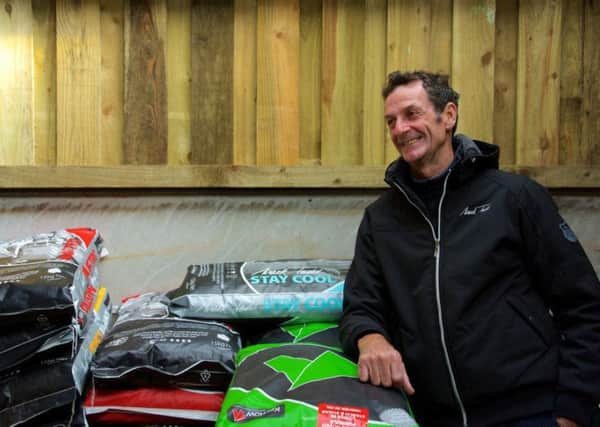Top tips for getting your horse competition ready


From nutrition to planning, schooling to scheduling Mark’s advice will have you and your horse prepped for success.
1 The importance of forage: Forage is the bulk of any horse’s diet and they require 1.5-2% of their body weight in fibre every day. When assessing and setting your horse’s diet, make sure you carefully consider all areas from concentrate to forage.
Advertisement
Advertisement
2 Don’t overfeed: It’s often misconceived that competition horses require lots of energy, so should therefore be fed a high quantity of feed. However horses are natural trickle feeders, with the stomach designed in a way meaning it should only be 2/3rds full. It’s recommended no more than 2kgs of concentrate in one feed is fed to the average 500kg horse. Keyflow uses steam extrusion technology to ensure the feed is highly digestible, allowing for less in the bucket.
3 Consistency: Horses thrive on consistency and their diet is no exception. Instead of feeding energy dense feeds before competition, we recommend gradually increasing a horse’s feed. Plus - a good tip is to feed your horse a handful of chaff before a competition which helps protect the stomach from any risk of gastric ulceration.
4 Understanding protein: Protein is often misunderstood in a horse’s diet because many rider’s treat it as an energy source. Therefore if a horse is hot, sometimes the protein levels are taken out of the feed. Protein is an essential part of the diet and is responsible for the growth and repair of muscle tissue, which is essential for building a competition horse.
5 Electrolytes: When horses are in hard work they obviously sweat a lot, causing the loss of essential salt in the body, which can lead to performance affecting deficiencies like tying up and dehydration. The best way to supplement this is to add salt to feed and use salt licks. Also, after heavy exercise or extreme weather conditions, provide additional electrolyte supplements.
Advertisement
Advertisement
6 Set your goals: It’s important to have a goal in mind when planning your horse’s schedule. Once you know what success looks like, you can feed, train and prepare your horse accordingly giving you the best shot to achieve them. Start a calendar and diary and as you progress through the year, keep adding to it.
7 Follow a routine: Horses thrive off routine and by following a schedule you’re giving your horse the best chance at your fitness and competition goals. Try and feed, school and ride out at the same time of day and week to get your horse well acquainted to a schedule.
8 Minimising stress: Stress has a big effect on a horses’ performance. When attending a new venue or location, try and keep your horse as comfortable as possible and give them plenty of time to settle in. Try to keep their feeding time as consistent as possible and ensure they have enough forage.
9 Keep it simple: Horses’ thrive off a simple, structured and well planned routine from their diet all the way through to their competition performance. Don’t overcomplicate things; keep the message the same and the expectations clear for your horse.
Advertisement
Advertisement
10 Rider fitness: We often focus on our horses’ fitness but it’s equally important that we are in shape too. Having strength in the right areas and the stamina required to ride your horse in the right way shouldn’t be overlooked. Swimming and rowing are fantastic for core and all around strength which can be great assistance to riders, along with jogging for cardio ability.
Offering the very best feeds through a range of stockists throughout the country, Keyflow products and samples are also available online at keyflowfeeds.com